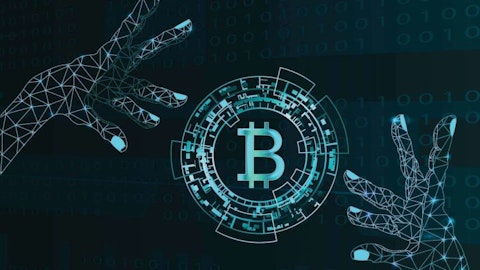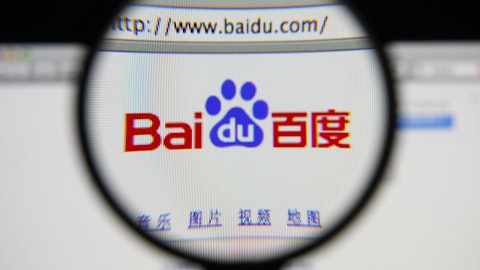Many crypto investors have been waiting several years for this to happen, but experts have called it – a new altcoin season is upon us. After seeing record inflows to Bitcoin, followed by a surge in Ethereum where it outperforms BTC, we can now expect investors to start directing funds into other large and small-cap assets.
However, even in a surging altcoin market, some assets will always perform better than others. Ascertaining which ones will outperform the markets is where fundamental analysis comes into play. Projects with a strong chance of gaining user adoption and lasting the long term offer some of the best chances of healthy returns.
Here are seven picks for altcoin projects that offer plenty of promise in 2021.
The crypto craze is showing no signs of slowing down. After a record-breaking start to the year for Bitcoin and Ethereum, altcoins such as Litecoin, Stellar, and Cardano have rallied behind. Many speculated that the BTC bubble would burst at the beginning of this year, sending negative ripples across the altcoin market and triggering a mass sell-off similar to 2017. But the exact opposite happened.

Pixabay/Public Domain
Stories such as DOGE’s ride to the moon and Tesla’s recent $1.5 billion investment into BTC have only been good news for altcoins, with the global attention on Bitcoin raising market awareness around other tokens.
There are plenty of people who feel like they’re late to the Bitcoin game and accordingly turning their attention to altcoins as a result. Thankfully, the continued interest in cryptocurrency has led to some exciting alternatives to BTC. But with so many available, trying to identify the altcoin projects that show the most promise can be tricky – unless you know what to look for.
That’s where financial analyst Luis Aureliano comes in. An MBA in economics and management alongside more than 15 years’ experience in the industry has helped him build expertise around macroeconomics, stocks, and emerging markets. Luis believes the cryptomarket has never had so much promise:
“Altcoins have typically rallied behind Bitcoin during bull runs in the past, but there are lots of innovative altcoin projects that have the potential to outpace the growth of Bitcoin in the coming years. The growing interest in cryptocurrency from retail investors and the adoption of new crypto models from financial institutions has created the perfect environment for this to happen.
“With larger sections of the economy currently recovering from the damage inflicted by the coronavirus pandemic, altcoin projects and blockchain technology are perfectly placed to accelerate the market’s move towards a digital future” said Aureliano.
These are Aureliano’s top altcoins to watch out for in 2021:
1. Elrond
Elrond launched on mainnet in 2020 as a blockchain platform that offers very high transaction speeds of up to 100,000 per second thanks to its unique sharding mechanism. Many other solutions simply shard the network into groups of nodes to process transactions specific to their shard.
However, Elrond takes a more holistic approach called Adaptive State Sharding. It groups nodes into shards and the transactions and blockchain data, taking into consideration the number of available nodes and the levels of network usage. This approach dramatically increases throughput without compromising on decentralization.
The value of the Elrond token, EGLD, recently surpassed $1 billion in market capitalization. The platform has over 90,000 active accounts, over 2,000 validators on the network and has onboarded 115 businesses and startups to build decentralized applications. However, the project team isn’t stopping there, outlining ambitious plans for 100 days of hyper-growth in 2021 and aiming to onboard a further one billion users.
2. Reef Finance
The DeFi landscape has exploded over the last year, with the total value locked and the number of applications increasing exponentially. As a result and somewhat paradoxically, this sector of “open finance” now has many more barriers to entry for newcomers than even its traditional counterpart.
Therefore, Reef Finance was conceived as a cross-chain DeFi operating system for newcomers wanting to explore decentralized financial opportunities. It aims to democratize access to DeFi by keeping the technology separate from the user experience, creating a more beginner-friendly environment where users don’t have to understand all the inner workings to participate.
The project offers several features to users. It serves as a liquidity aggregator and yield engine that offers smart lending, borrowing, staking, and mining services. It’s already teamed up with Manta Network to incorporate the liquidity from Manta DEX.
The Reef token provides several benefits and utilities, including governance participation, staking, yield distribution, and it also acts as the currency for paying fees.
3. Bluzelle
Bluzelle is a decentralized data storage network for blockchain-based applications. Until now, dApps have been limited in what they can use a blockchain for, with token issuance and transactions taking place on-chain while storage of data relating to the dApp is kept off-chain. The reason for this is that it’s prohibitively expensive to store data on a blockchain like Ethereum.
Therefore, most developers use centralized storage solutions such as AWS. However, it means that dApp data doesn’t benefit from the security and censorship-resistance of blockchains.
Bluzelle overcomes this problem with an interoperable, decentralized database, where participating nodes provide their storage capacity to the network. In return, they’re entitled to a share of fees paid by those using storage – fees that are far more competitive than those charged by centralized data storage companies. The BLZ token, which can be used to access the Bluzelle ecosystem, is already available on leading exchanges.
Bluzelle is due to launch on mainnet on February 3, and the project has already established a collaboration with the Web3 Foundation to provide services to dApp developers on Polkadot.
4. Clover
Clover is a Polkadot parachain offering an all-in-one DeFi platform backed by Bithumb Global. It’s open for developers to contribute to modules and applications, reducing the need to repeat the effort to recode the same functionality across different applications. Along with the open platform, Clover is also planning to launch several in-house applications with standard features such as decentralized token swaps, lending, and a wallet.
The CLV token is a utility and governance token used for staking and participating in decisions regarding the platform. CLV token holders are also eligible for a share of fees paid by users of the platform.
Although the project has backing from Bithumb, Clover is intended to be an open ecosystem that will actively seek to work with other partners, including exchanges, outside of Bithumb. Bithumb will provide a custodial solution for cross-chain transactions where on-chain transfers are not feasible. For example, Clover is compatible with the Ethereum Virtual Machine, enabling trustless two-way pegs between ERC-20 and DOT assets.
5. Elastos
Elastos is billed as a secure, tamper-proof decentralized operating system for the internet. It acts as a layer between decentralized applications and the internet. Therefore, applications aren’t exposed to the risks of malicious attacks that come with internet connectivity. Furthermore, the user must verify all communications, ensuring that the app can’t connect to any untrusted source without explicit consent.
The platform already operates a main chain and several side chains dedicated to providing solutions for dApps. The main chain takes care of trust, security, and payments with the ELA token, which is merge-mined with BTC and has over 50% of Bitcoin’s hash rate. There’s also a digital identity side chain and an EVM compatible smart contract side chain.
Elastos recently joined Hedera Hashgraph and ConsenSys as part of an exclusive group of blockchain projects working with the World Economic Forum. Dubbed the Global Innovators Community, the group aims to achieve global changes using technology.
6. Rocket Vault Finance
Rocket Vault Finance is an innovative project using artificial intelligence and machine learning algorithms to manage investor funds for consistent returns. Users participate by putting their funds into an automated smart vault, which monitors hundreds of cryptocurrency assets across global exchanges, including Binance and Uniswap. It identifies tokens that have upside potential and those that pose a potential loss risk. It continually rebalances invested funds, taking profits at optimal levels.
Profits are put into a Treasury smart contract programmed to pay out to investors each quarter in stablecoins. A portion of profits is also reinvested to leverage the effects of compounding.
The project team has been testing the technology for over a year and states that investors can expect 100% APY on average based on tests. Retail investors can benefit from low fees by holding the RVF token, providing a utility that ensures a portion of the token supply always remains out of circulation.
Rocket Vault Finance will launch in public beta during the first quarter of 2021.
7. Orion Protocol
Orion Protocol is a liquidity aggregator aimed at collecting the entire liquidity in the cryptocurrency markets into one place. Due to rapid growth, the cryptocurrency markets have grown into a very fragmented market with liquidity spread over hundreds or even thousands of trading venues. Furthermore, the most liquid platforms are still centralized cryptocurrency exchanges, requiring users to trust their funds to a small handful of people.
Therefore, Orion Protocol aims to pull all the liquidity on centralized and decentralized exchanges into one decentralized platform. As current liquidity aggregators such as 1inch only pull from decentralized exchanges, Orion occupies a currently unique position on the market with a first-mover advantage.
Because Orion Protocol is decentralized, it’s also non-custodial, meaning that users don’t have to trust any intermediary with their funds.
Last summer, the project raised $3.5 million in a token sale dubbed the “most successful in 2020.”Orion Protocol has already launched its Orion Terminal, a B2C offering. It will soon launch a B2B portal and a price oracle.
Disclosure: No positions. Insider Monkey doesn’t recommend purchase/sale of any securities. Please get in touch with a financial professional before making any financial decisions. You understand that Insider Monkey doesn’t accept any responsibility and you will be using the information presented here at your own risk.





